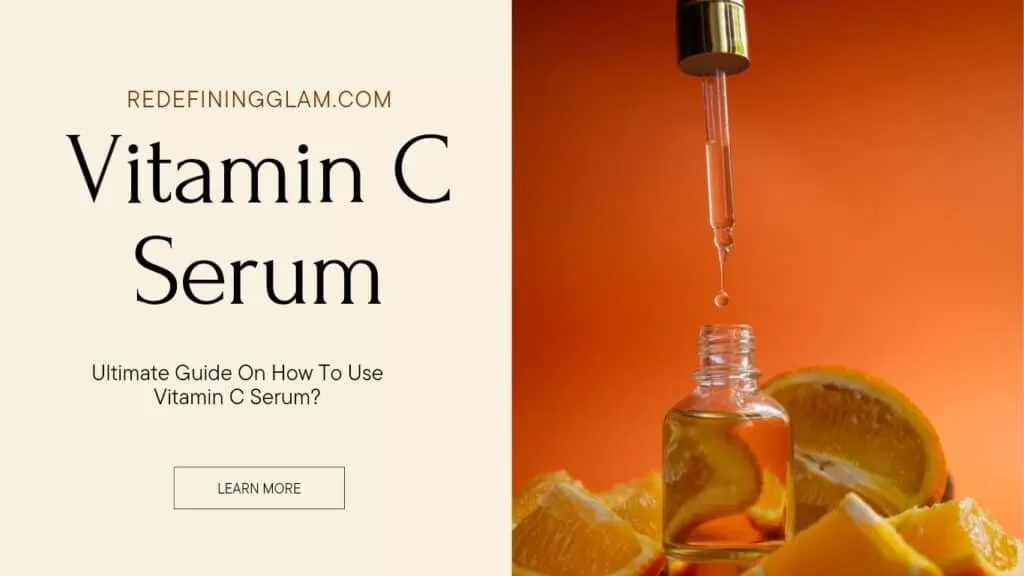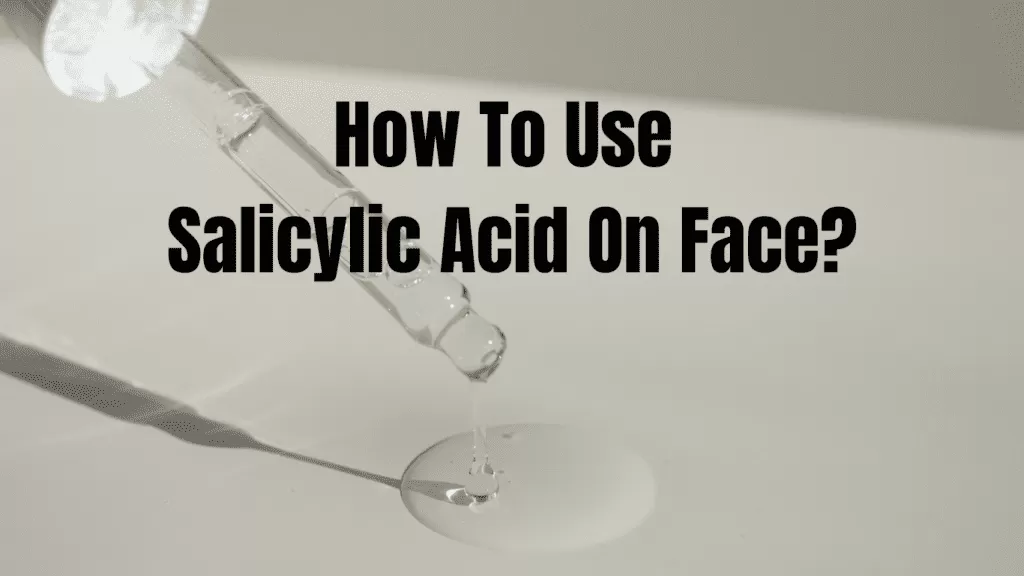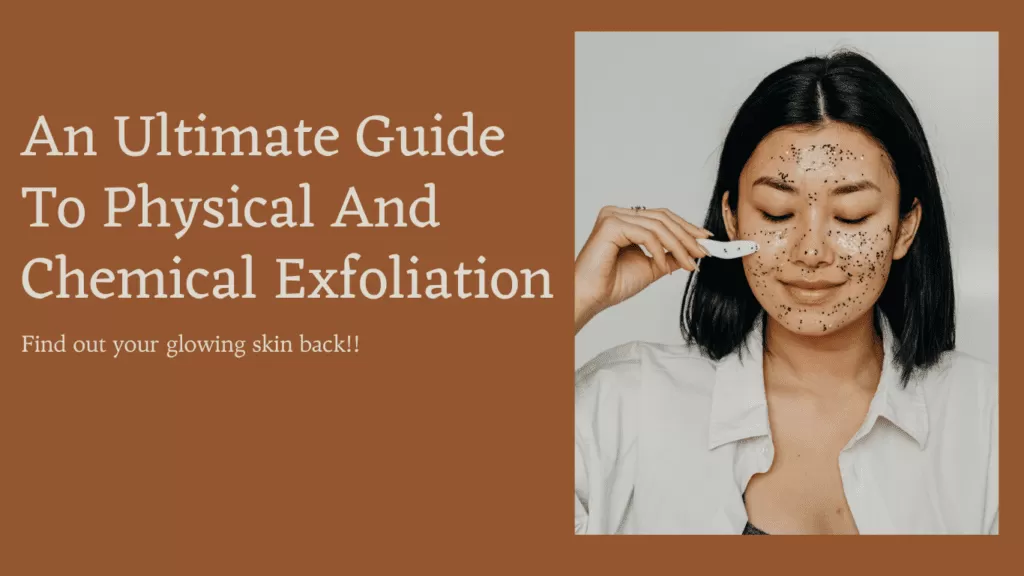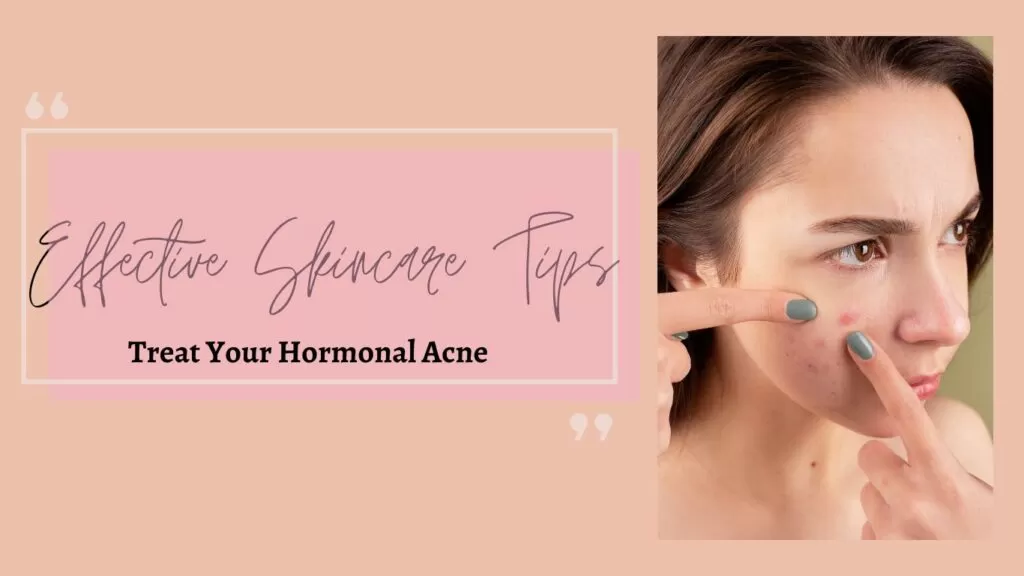
Hormonal acne occurs due to hormonal fluctuations. There can be many reasons, puberty, menstruation, pregnancy, menopause, or even when you’re stressed. How does a hormone trigger acne? Well, certain hormones present in our body can trigger acne. They stimulate the sebum production that clogs your pores. Also, some hormones increase oil and sebum production resulting in acne. Hormonal acne can be hard to treat. But things can be easy if you know everything about your hormonal acne. So here we are with the ultmate guide on how to identity the causes of hormonal acne?
Hormonal Acne- How to Identify The Causes of Hormonal Acne?
Hormonal acne is a chronic inflammatory condition. It is a prevalent condition in the USA, affecting around 85% of adolescents. The primary cause of this acne is fluctuations in hormones, particularly androgens. It is a hormone present in males and females. It increases naturally in the body during adolescence, but people even face acne in adulthood, mainly, females who face hormonal imbalances during menstruation, pregnancy, menopause, etc.
Let us understand the causes of hormonal acne individually. We will also give effective skincare tips to treat hormonal acne for each phase. So stay tuned.

Teenager Hormonal Acne
Hormonal acne is common during adolescence and puberty. During this stage of life, our body goes through different changes. There is a sudden increase in sex hormones, including androgens, estrogens, and progestogens. Among them, androgens play a significant role in the development of acne.
Androgen is present in both males and females. It stimulates sebaceous glands that increase sebum production. This excessive sebum clogs the pores causing acne. It also causes skin cells to stick together, causing comedones. It also contributes to increased skin inflammation, causing red and painful acne.
Teenagers often experience acne in their t-zone and cheek areas. Sometimes, it also spreads to the neck, chest, and back.
Here are a few common acne among teenagers:
- Whiteheads
- Blackheads
- Papules
- Pustules
- Cysts
Do you want to build a skincare routine for your acne-prone skin? Well, check out this article- Effective Skincare Routine for Acne-Prone Skin
Notice: We will publish a separate guide on teenage acne & how to deal with it soon. So stay tuned.
Learn how to properly exfoilate your skin with this detailed guide: An Ultimate Exfoliation Guide On Physical And Chemical Exfoliators
Adult Hormonal Acne
Adult acne is more common than you think. In many cases, people who haven’t experienced acne throughout their teenage, suffer from adult acne. It is due to hormonal fluctuations during menstruation, pregnancy, and menopause.
Menstruation
During the menstrual cycle, the female body goes through several hormonal disturbances. The average process lasts for 28 days. And each day, hormone levels in our body change. The main hormones are estrogen and progestogen. They both are significant hormones in our body.
Estrogen stimulates collagen production and manages sebum production for clear skin. On the other hand, progestogen is the primary cause of excessive oil and sebum production in our bodies. But it is not a harmful hormone. It prevents cervical cancer, depression, and headaches.
During the whole cycle, the amount of these two hormones changes. In simple words, in the first half, estrogen is dominant, and you notice clear skin. And in the other half, progestogen is higher. And your acne can get worse.
A week before your period, progesterone level reaches its peak level. And you notice that your acne flares up. In your actual period, the progestogen level starts decreasing. This results in the accumulation of dead skin cells and clogged pores. And after six days, estrogen replaces progestogens, and you can see your acne getting better with time.
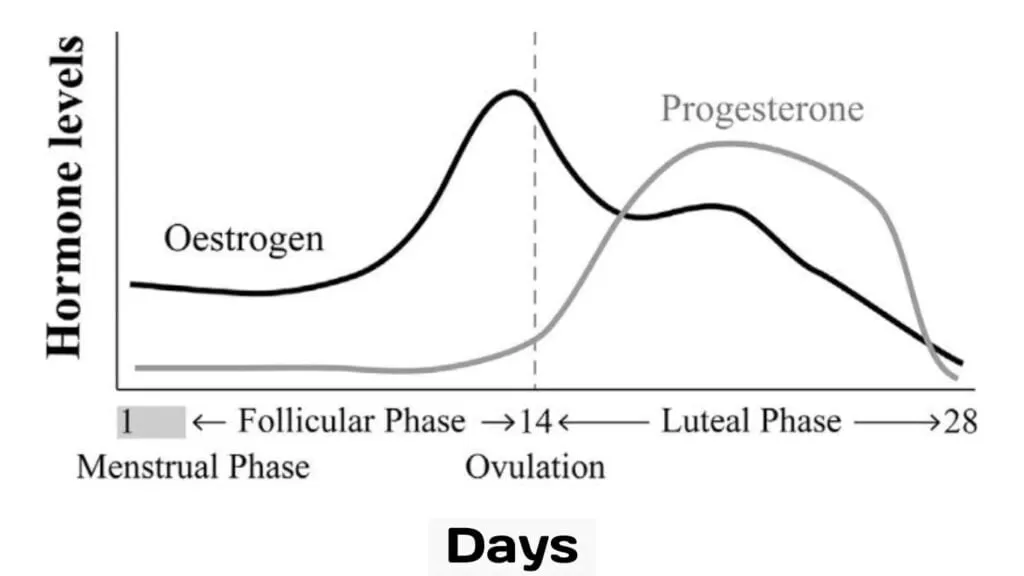
Learn to take care of your open pores and unclog pores effectively with this article- How To Treat Open Pores On the Face?
How To Take Care Of Your Acne During Menstruation?
Taking care of yourself during your periods is crucial. You should rest a lot. If you have a bad sleeping cycle, you must change it. Watching Netflix at night can harm your beauty sleep. It can irritate your life.
A week before your periods, when progestogen is at its peak, you should focus on efficient cleaning. Due to the increased level of progestogen, your skin is producing excess sebum and oil. You have to clean them out every day to avoid clogging your pores.
During your actual period, dead skin cells pile on your skin. No matter how tempting it looks, don’t exfoliate. Also, don’t you dare to pop that juicy pimple? It will cause stubborn acne scars. Use gentle moisturizing skincare products, like a hyaluronic acid serum to calm your skin and soften those piles of dead skin. You can apply a toner containing AHA (Mandelic acid) and gently wipe off your face.
Note:
Also, avoid using any functional product like vitamin C serum.
Six days after your periods, it is the best time to manage your acne. Estrogen level is increasing, your scars would heal faster. You can pop that acne.

Pregnancy
Women also notice acne during their pregnancy. The main culprit behind this kind of acne is also hormonal changes. The imbalance of hormones, especially in the first trimester, causes acne breakouts. You may notice more happiness around your chin area, cheeks, and under your nose.
If you don’t break out in the first trimester, then it is highly likely that you won’t during the next two trimesters. But if you have a history of nasty acne or acne flaring up during menstrual periods, you are at high risk.
How To Take Care Of Your Acne During Pregnancy?
Ok, so first, you are pregnant and carrying a precious life. So you should not use any skincare product that can harm your child. You should avoid using retinol or its derivatives during pregnancy. Even if you are breastfeeding, using retinol is not recommended.
You should try out natural and home remedies to tackle your acne. Also, you can use benzoyl peroxide or salicylic acid to treat your acne. But first, consult your doctor and dermatologist.
You should use gentle skin care products. Rather than a Western skincare routine, a Korean skincare routine would be right for you. It uses gentle products and focuses on prevention.
Check this article to find out the best Korean skincare routine for acne- Effective Skincare Routine for Acne-Prone Skin
Postpartum
You may also notice this on your face or body in the postpartum period. It may appear right after giving birth or one/two weeks later. It also results due to changes in hormone levels.
The change of hormones in the body interferes in the production of sebum and oil causing acne. Also, if you stress not wash your face regularly, or don’t sleep properly, you may develop acne.
How To Take Care Of Your Acne During Postpartum?
When you have a baby, your entire life changes. Your sleep cycle, eating habits, and lifecycle changes. And in this sensitive time, you don’t want to be disturbed by acne. Try using a Korean skincare routine for acne. Also, try to cleanse your face often, even if you are tired. Try to eat healthy food, rest well, and take care of yourself too, with the baby.
Also, don’t use any active ingredients to treat your acne.
Menopause
Some women can also notice acne on their faces during their menopause. The term menopause implies the ceasing of your menstruation cycle. Estrogen and progesterone levels in your body are decreasing causing breakouts. Due to the decline of estrogen levels in your body, collagen production is affected. There is also a decrease in skin cell regeneration. Also, due to progesterone, your skin produces more oil and sebum, clogging pores.

Stress
Do you know stress can also trigger hormonal acne? When your body is under stress, it releases a hormone called cortisol. It is produced in the same gland from which androgen is produced. This hormone also acts similarly to androgen and triggers excess sebum production causing acne.
How To Take Care Of Acne During Stress?
Stress is associated with a heated face. So the first thing, you should do to avoid stress acne is to cool the skin temperature. You can place a wet iced water towel on your face. You can also follow this skincare routine.
- First of all, cleanse your face with a green tea cleanser.
- Now apply a hydrating toner.
- Use a gel-type serum with hyaluronic acid to calm your skin and provide enough hydration.
- Now use a moisturizer that has a cooling and calming effect on your face.
Using a sheet mask or modeling clay mask is also effective.
Final Words
Hormonal acne varies from one person to another. It is one of the most stubborn acne to take care of, but with persistence and consistency, you can win over it. These were some effective tips to identity the causes of hormonal acne.
Also, you must consult your dermatologist before using any acne treatment with harsh and active chemicals.
